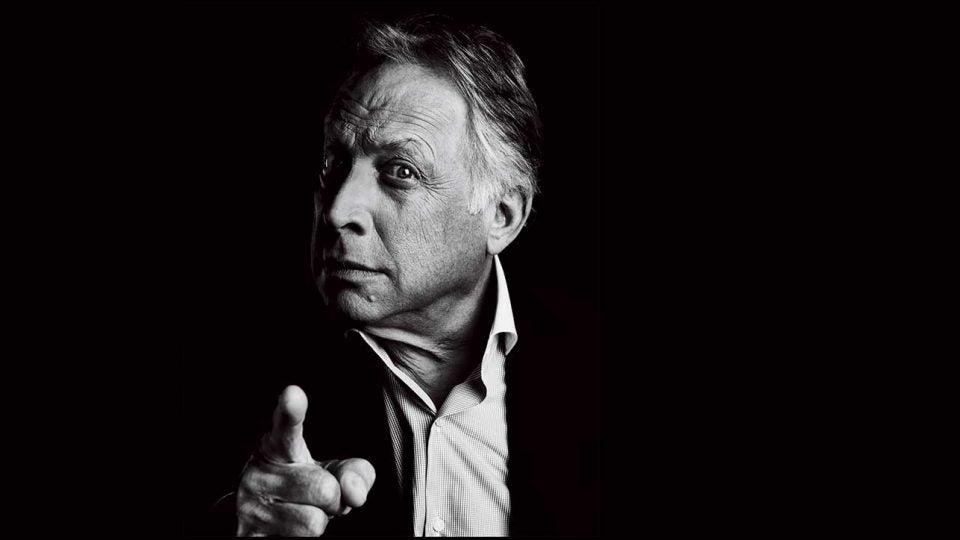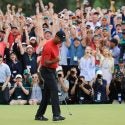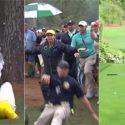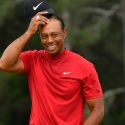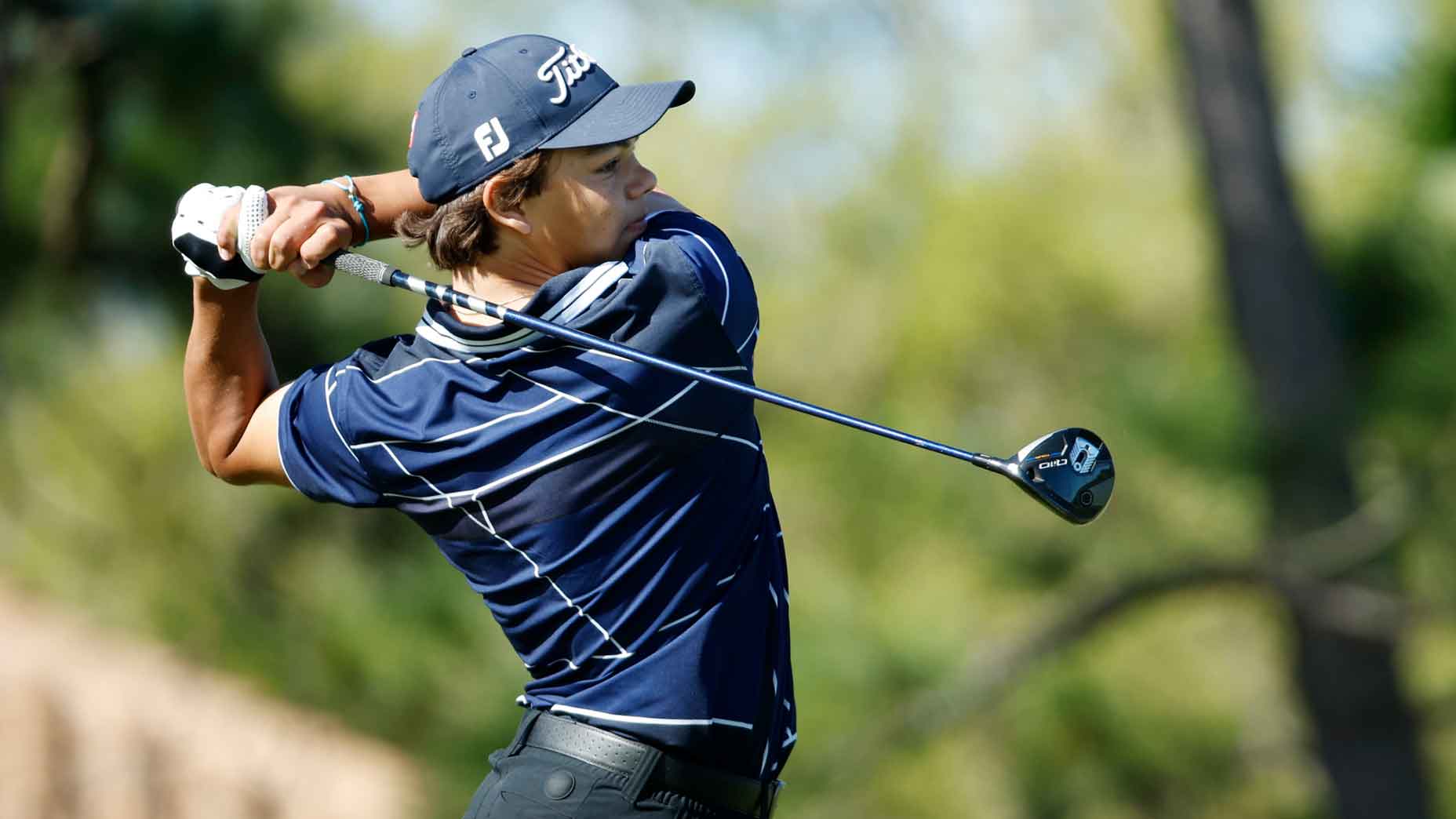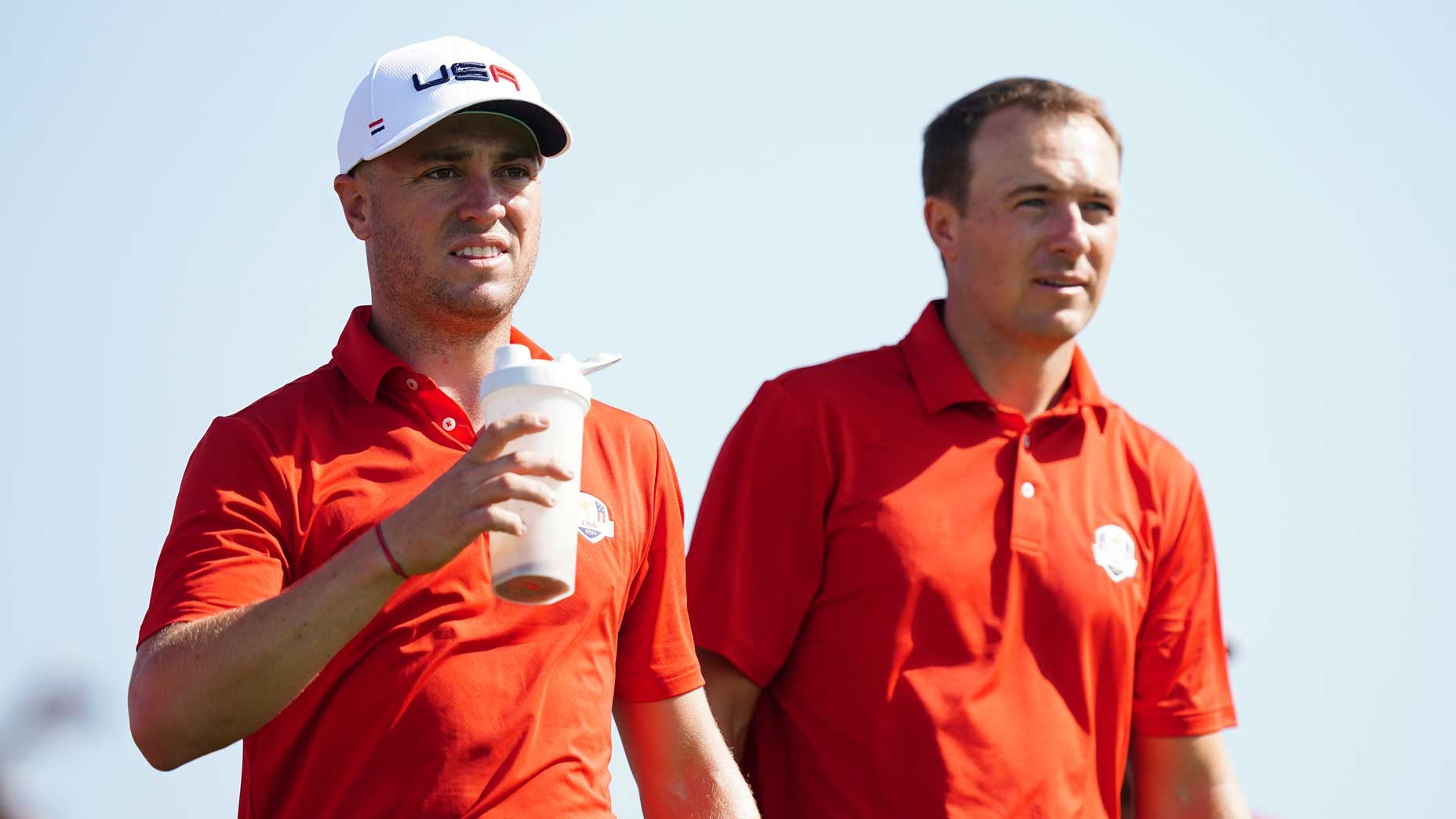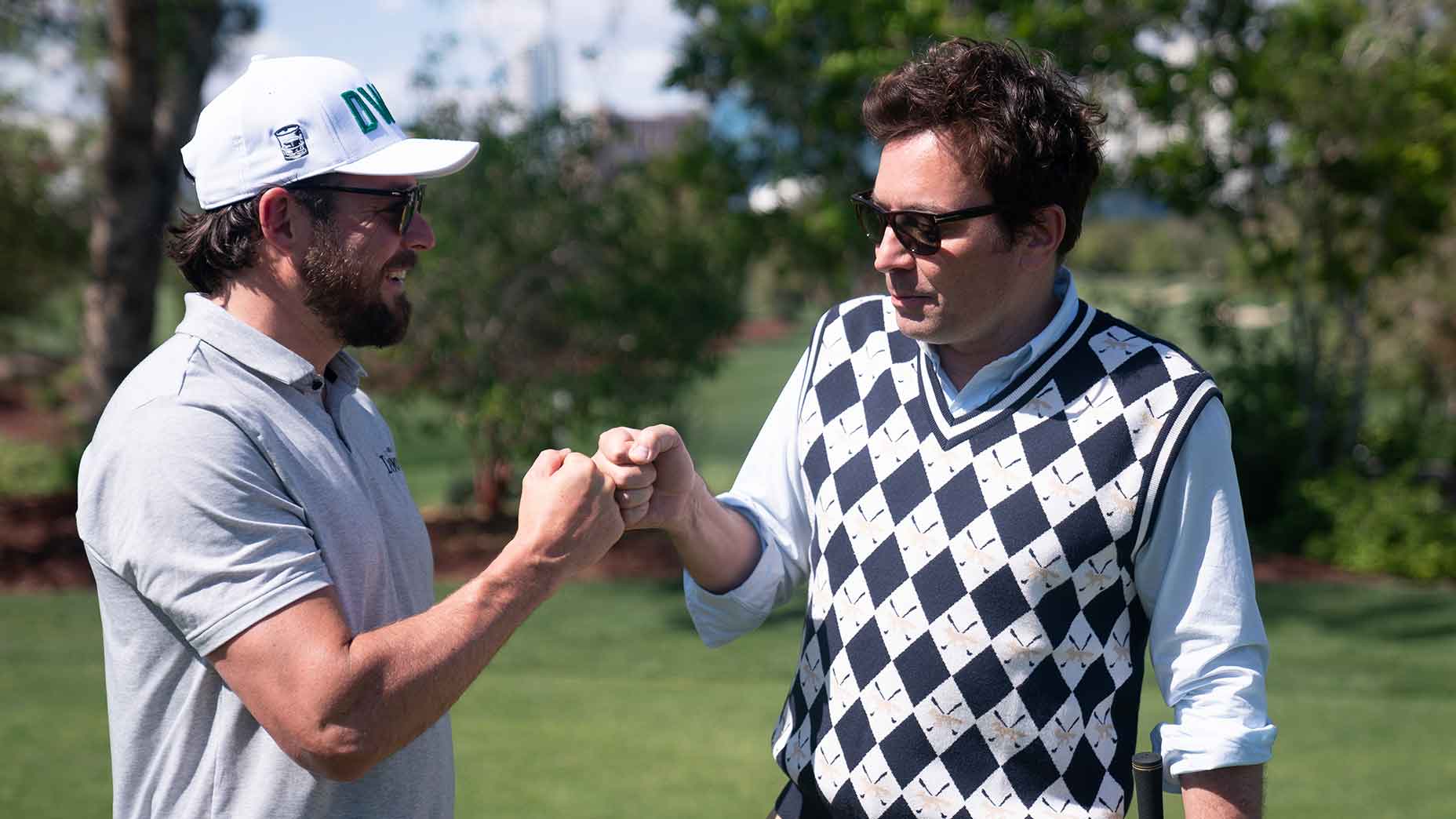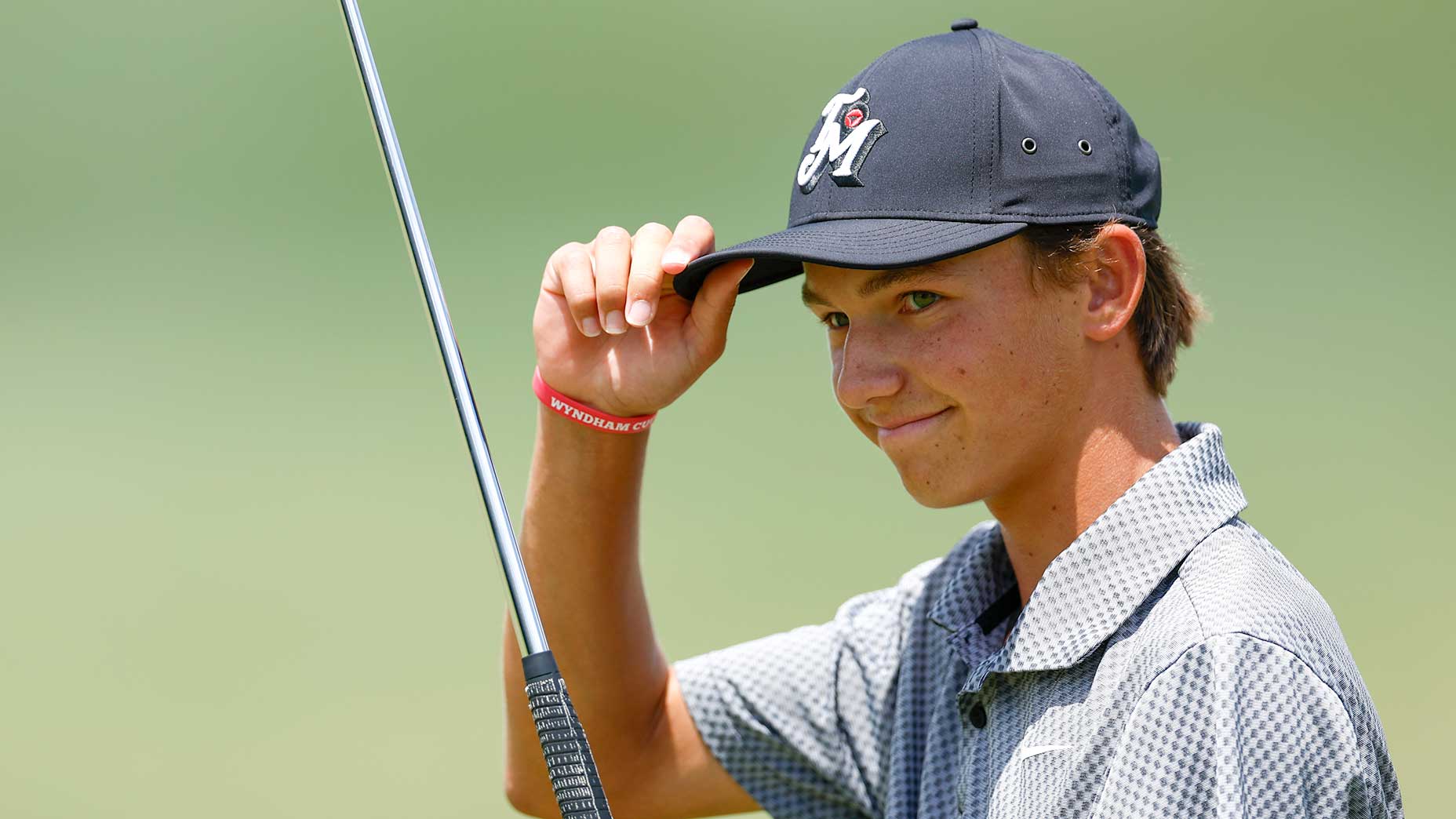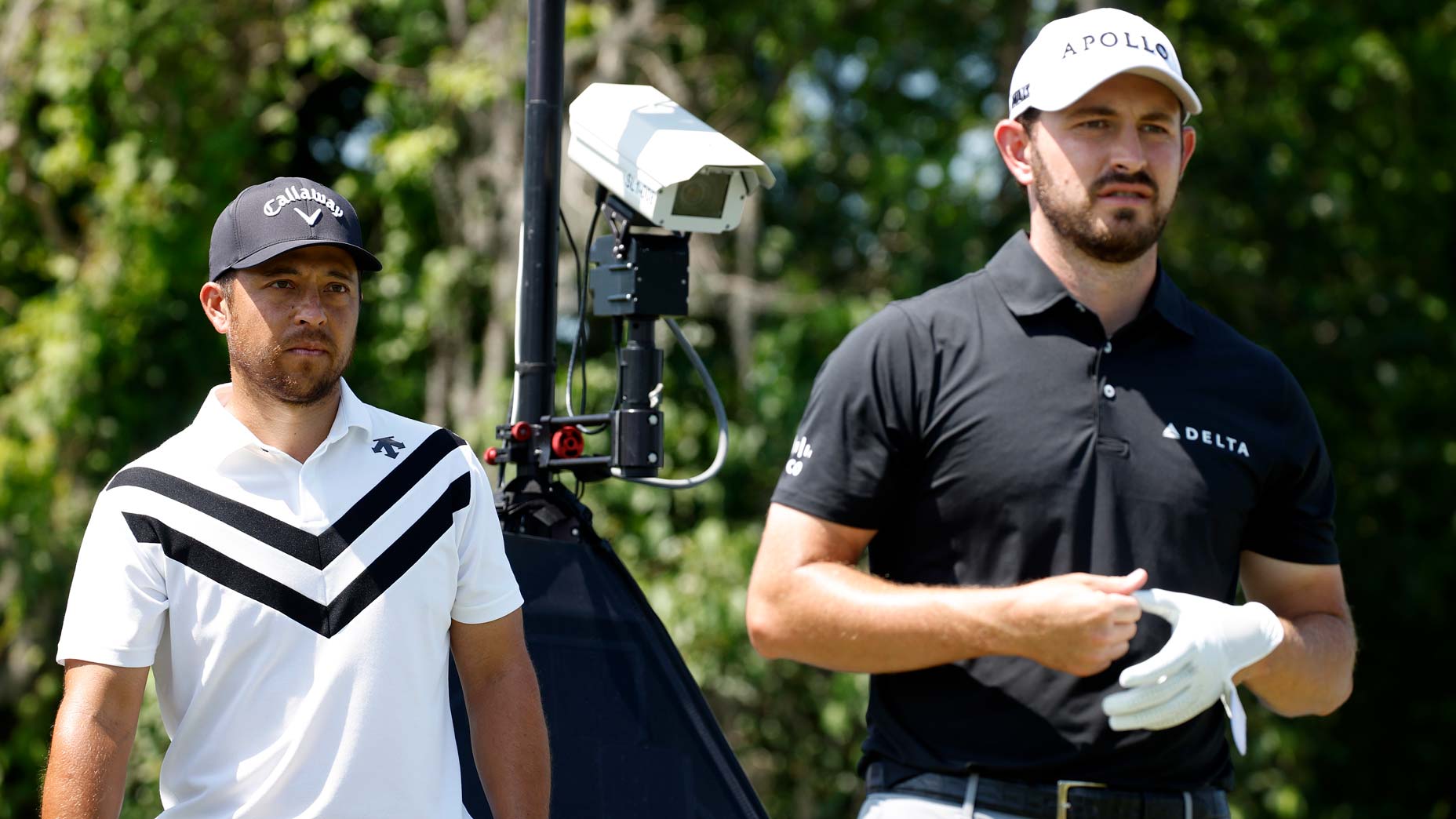Peter Kessler, of HBO Sports and Golf Channel fame, has been to the sport’s media mountaintop, but the difficulty is getting back down.
A DRAMA IN THREE ACTS
CAST (in order of appearance):
PETER KESSLER
Tortured genius (self-proclaimed)
JANET PHILLIPS KESSLER
Endlessly patient wife
JOE GIBBS
Co-founder of Golf Channel, nemesis to our protagonist
LEE SIEGEL
Kessler’s loyal producer
GARY PLAYER
Fan of Kessler’s work
SCOTT VAN PELT
ESPN star/Golf Channel alum
ARNOLD PALMER
Co-founder of Golf Channel, friend and mentor to Kessler and the man who unwittingly hastens his downfall
KEVIN KESSLER & CHRIS KESSLER
Loving sons who call their dad their best friend
PROLOGUE
The living room of a tidy light green house on Lake Winnah, in Orlando. Sitting on a couch is PETER KESSLER, 67. He is watching a golf tournament on a large TV. From his mannerisms and the look in his icy blue eyes it is clear that Kessler is frustrated by the coverage. He leaps off the couch and hurls the remote control against the wall.
KESSLER, yelling at the TV: These people don’t know anything about storytelling. They don’t know anything about developing characters, about moving them around on the stage. They think this is journalism. It’s not. It’s supposed to be theater!
He picks up his smartphone from the arm of the couch. On the wall behind Kessler, the Twitter icon appears and then flutters out of sight.
KESSLER, tapping on his phone furiously while growling: Idiots…buffoons…diarrhea of the mouth…morons…
The lights dim.
ACT I
SCENE I: The bag room at Cedar Hill Country Club in Livingston, N.J. The year is 1961. Working very long hours, Bernard Kessler has built a successful department store and achieved the American Dream of joining the local club. On the weekends he plays golf with his friends, but, in a sign of the times, does not invite his son to the course. Tonight, the family is having a Memorial Day dinner at the club. From offstage we hear music, merry voices, and the clattering of silverware as 9-year-old Peter, looking over his shoulder, creeps into the bag room. He is dressed in a tie and blazer. He begins rooting around in the golf bags, stuffing his pockets with balls and tees. He liberates a couple of clubs to take out on the course under the cover of twilight.
KESSLER, addressing the theater audience as he removes his tie: This is the night I fell in love with the game. I’d had a little exposure to it — a Bob Toski clinic at the club, watching Arnold Palmer on TV — but it had always been this kind of secret world. Suddenly I was part of it and I loved everything about it. I felt such a sense of peace on the golf course. It felt like home. And I was amazed that no two putts were ever the same, no two shots. I just loved the endless discovery of learning the game. I started begging my mom to take me to tournaments. I saw Jack win at Westchester, I saw Arnold win, and I just ate it up. I was a normal kid except for this obsession I had with golf.
SCENE II: The public library in Short Hills, N.J. Young Kessler plops a tall stack of golf books on the check-out counter. The spines feature the names Bernard Darwin, Herbert Warren Wind, Peter Dobereiner, Robert Browning, Henry Longhurst and Robert Tyre Jones, Jr.
LIBRARIAN, teasing: Didn’t you check out all of these last week?
KESSLER: No, those were instruction books. These are historical, and, yes, I’ve checked them all out before. I’ve been trying to figure out who invented golf. It’s such an exciting topic. I’ve decided that there are three things that make golf golf: cross-country hitting, no interference by an opponent, and the act of holing out. The predecessor was a Dutch game called chole, where you would hit your ball three times, but after the third try the opponent could knock your ball away. The target was a doorway or a tree. The games could go on for a very long time, so holing out began as a way to break the tie. From what I gather, they just used a rabbit hole or something like that. In 1403 or 1404, the English and Scots were engaged in war and France was aligned with Scotland. When they weren’t fighting, the Scottish soldiers, now stationed in France, learned the game of chole. And I’m certain that they brought the game back home and just decided to get rid of the interference by the opponent. They made holing out the central act, and then we had golf.
LIBRARIAN, chuckling: That’s all very impressive, Peter. It’s too bad you’ll never be able to make a living with all of this trivia.
SCENE III: The headmaster’s office at Robert Louis Stevenson, an exclusive boarding school in Pebble Beach, Calif. Kessler, now a junior, has spent the ensuing year and a half studying the local golf courses, including the recently opened Spyglass Hill, the 18th tee of which abuts the campus. Kessler and a FRIEND, both with mussed hair and bloodshot eyes, sit in high-backed chairs.
HEADMASTER: Gentlemen, stealing one of this institution’s automobiles is a very serious offense.
KESSLER: But we didn’t steal it. We just borrowed it. We were always planning on returning it.
HEADMASTER: According to the odometer, you drove a total of 243 miles. I would like a full accounting of your evening.
FRIEND: Petey made me do it.
KESSLER: Sir, you don’t understand. Cream was playing at the Fillmore. Do you realize that since it’s a trio, Eric Clapton plays the lead and rhythm guitar. I’m a guitar player, too, and my mind was blown.
HEADMASTER: I am glad you enjoyed the concert, for it is your final act as a student at this school. I have informed your parents that you will be on the next flight home.
KESSLER, to the theater audience: That changed a lot of things for me. The kids at Stevenson went to the best colleges. I wound up at Cal Western, which is not to be confused with Stanford.
SCENE IV: The theater at Cal Western. Kessler is dressed in ancient Greek attire for his role as Jason in an opening night performance of Medea. As he waits to go on stage, Kessler chats with a member of the crew.
STAGEHAND: This is such an exciting night! How did you know you wanted to be an actor?
KESSLER: Um, hello…have you noticed there are only a few dudes here surrounded by all these beautiful women? It’s a no-brainer. God gave me this voice, and I’m the only guy in the cast who can grow a beard, so I get all the good parts.
On stage, Kessler steps forward to cheering and takes a bow, signaling the end of the show. JANET PHILLIPS and her FRIEND walk from their seats to the stage to greet him.
FRIEND: Petey, this is Janet, the girl I was telling you about.
KESSLER: The one who is engaged?
JANET: That’s right.
KESSLER: Maybe I can talk you out of it.
Kessler drifts away to chat with a few of the other cast members.
JANET, to friend: The guy does have a big ego, but there’s still something very charming about him. He seems like a natural-born salesman.
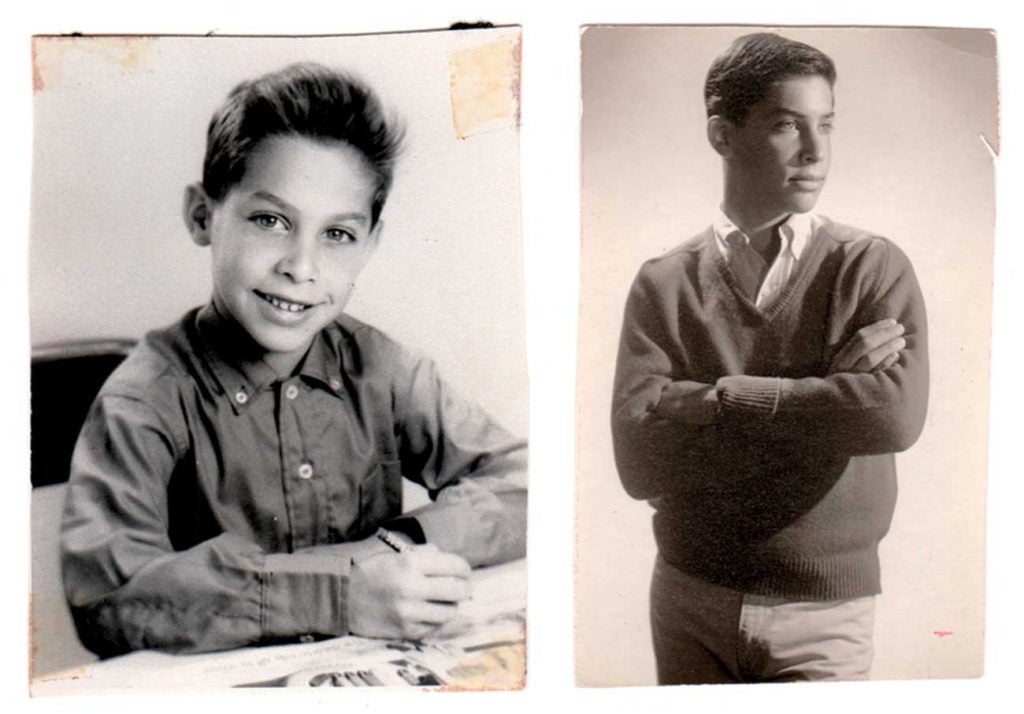
SCENE V: The living room of a suburban home in Rye, N.Y. The year is 1986. Every flat surface is piled high with golf books. On the walls are black-and-white photos of Bobby Jones and paintings of old-time golf scenes. Janet and Peter are now married, with a daughter, Jennifer, and a son, Chris. Peter, holding a law degree but having soured on the profession, is working as regional manager of direct investments at Smith Barney.
KESSLER, entering the room in a beautifully tailored suit: Honey, I closed that deal with Marriott. They came in with $285 million. Looks like the Kessler family is going on another all-expenses-paid vacation!
He pulls a club from a golf bag leaning in the corner of the room and begins to make fluid practice swings.
JANET: Do you think just this once you could not play golf on Saturday and Sunday? Last weekend you missed Chris’s game and he cried afterward. And the weekend before that Jennifer was upset when you skipped her recital.
KESSLER: Baby, I’ve already got 54 holes lined up at Fairview. On the train ride home I was reading this old Sam Snead book, and he wrote that to perfect your rhythm…
A child cries off-stage, and Janet follows the sound, exiting the scene. Peter, oblivious, keeps swinging the club and talking to himself.
KESSLER: …you have to hit nothing but 50-yard pitches. I’m going to do that for a couple of hours, and I’m hoping…
He keeps talking as the lights dim.
SCENE VI: The living room. On an end table is a photograph of Jennifer and Peter acting together in a community theater production of The Music Man. Peter and Janet are seated on the couch, his hand on her very large belly.
JANET: The doctor said the baby is definitely coming tomorrow.
KESSLER: March 17th. Unbelievable. That’s Bobby Jones’s birthday.
JANET: Petey, it’s my birthday, too.
SCENE VII: The bedroom, a few years later. Peter and Janet, cuddled in bed, are awakened by the kids running into the room, including Kevin, who was born on Jones’s birthday. The children carry balloons that say, “Happy Birthday!” Today is Peter’s birthday.
KESSLER, flat on his back, staring at the ceiling: Oh gawd, another year up in smoke. I can’t believe I’ve wasted my life as a corporate warrior. I should’ve been an actor. I should’ve been a golf pro. What a f—ing waste.
He turns to Janet.
KESSLER: I can’t do this anymore. My dad died of a heart attack when he was 50. His brother died at 42 of leukemia. I need to do something else. I need a plan.
The phone rings and Kessler answers it. The caller is MICHAEL WHELAN, a vice president at Golf Channel. His voice is amplified throughout the theater.
KESSLER: Hey, did you catch that thing on HBO Sports the other night? Those guys can’t get enough of my voice-overs.
WHELAN: I’ve got something better to offer. Arnold Palmer is starting a new network, the Golf Channel. I think you’re the perfect guy to serve as a host.
KESSLER: Buddy, I’ve never done on-camera work before. You know that.
WHELAN: Doesn’t matter. You’ve been on stage, you’ve done plenty of public speaking and nobody’s studied golf history more than you. Are you interested?
KESSLER: Interested? I’ve been waiting my whole life for this phone call.
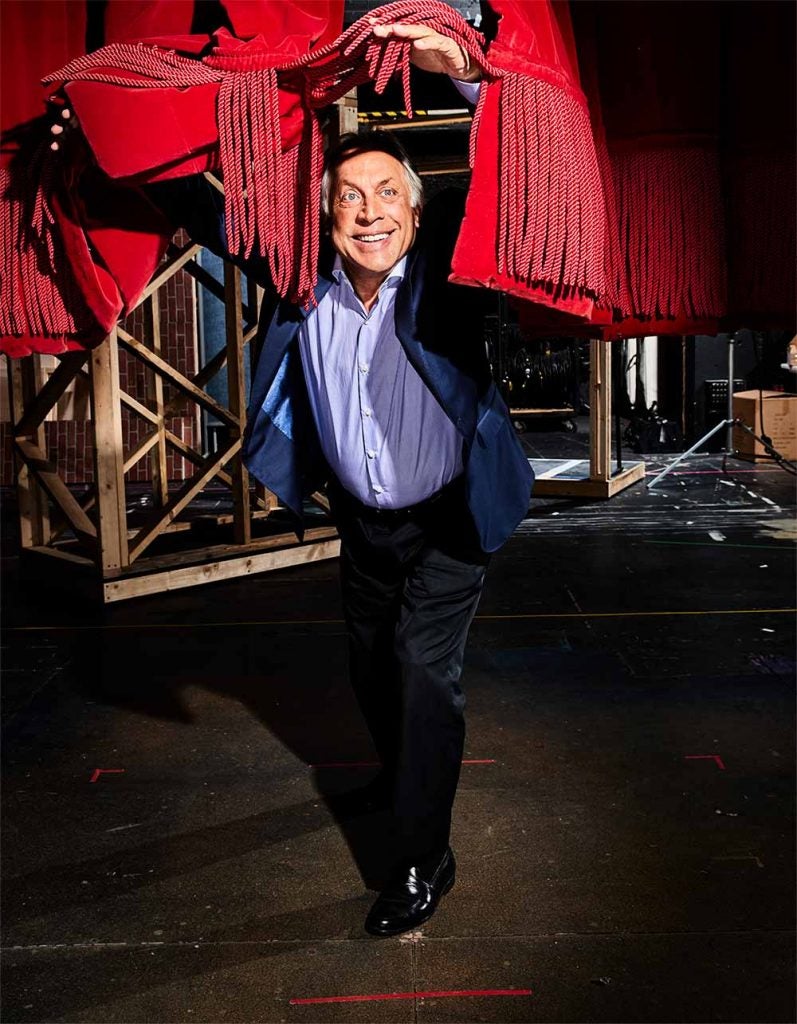
ACT II
SCENE I: The Golf Channel studio in Orlando. It is January 17, 1995, the evening of the network’s launch. Kessler is sitting in a chair on the set, surrounded by cameras. A makeup artist dabs at his forehead. Someone yells, “Two minutes ’til showtime!” Golf Channel co-founder JOE GIBBS sits down next to Kessler.
GIBBS, in a soft Southern drawl: How ya feelin’, sport?
KESSLER: Joe, you spent the last five years building this place and now you can finally relax. I feel like Michelangelo staring at a blank ceiling in the Sistine Chapel. I’m going to paint you a masterpiece.
Gibbs walks off stage.
KESSLER, to the theater audience: I’m Michelangelo and he’s f—ing Pope Julius II, rattling the scaffolding. The man wouldn’t know an artistic genius if he got spit on by one.
Kessler looks into the camera. The cameraman counts down from five with his fingers. As he gets to one the lights dim.
SCENE II: The control room within Golf Channel studios. Television monitors play on a loop the three shows that Kessler is hosting in plum 8:00 p.m. time slots: Golf Talk Live, featuring in-depth interviews with leading figures in the game; Academy Live, an instruction-based show starring big-name swing gurus; and Viewer’s Forum, a call-in show in which Kessler interacts with fans at home. Sitting in front of the TVs and a large control panel is veteran producer LEE SIEGEL, who works on all of Kessler’s shows.
SIEGEL, to the theater audience: Peter was a natural — so smooth, so confident. I used to tell people, Peter is more confident on his worst day than Muhammed Ali was on his best. It was hard to believe he had never done TV before. I guess he owed it all to that crazy savant brain. Before every show we’d send him these very thick research packets, culled from old golf magazines and books and anything else we could find. He’d eat them up and ask for more. Then he would take all of this information and refine it into detailed questions he knew would elicit good answers. The guests felt like, “Wow, this guy really knows me, knows what I’ve done, knows what I feel, so I better dig really deep with my answers.” I feel like I’m giving away Peter’s secrets here, but it was almost like he knew the answers before he asked the questions.
Kessler sits down in a chair next to Siegel.
KESSLER: Of course I did. For every show I was not only an actor giving a performance but also the playwright and director, too. I had seen the entire performance before it even began. I knew the guest’s lines even better than they did. It was an award-winning script that was performed to perfection, night after night.
A trim older gentleman dressed in black takes a seat next to Kessler.
GARY PLAYER: To me, Peter will always be the American “Voice of Golf” — that deep, distinct and instantly recognizable voice. Of course, he had a knowledge and understanding of the game that is so hard to duplicate, but it’s more than that. Some golfers have that “it” factor that allows them to win many major championships. Peter has the “it” in terms of his broadcasting.
A tall, bald, bespectacled man sits down next to Player.
SCOTT VAN PELT: Peter very quickly became the face of the place. And he loved that. Of course, what were we in at the time, 50,000 households? If that? It was a pretty small pond, but no question he was the biggest fish.
SCENE III: The grill room at the Bay Hill Club in Orlando. The year is 1999. Kessler and ARNOLD PALMER are seated at a table, with plates of sandwiches before them. They are laughing uproariously. Gibbs enters and gives Kessler a disdainful look.
GIBBS: What the hell are you doing here? You should be at the studio.
KESSLER, smugly: Arnold invited me for lunch. You don’t say no to The King.
Gibbs stalks away.
PALMER: That was weird.
KESSLER: He’s so jealous of our relationship — you should have seen his face when he heard that I had stayed with you and Winnie in Latrobe.
A man walks onto the stage, wearing a large PGA Tour media credential around his neck. He has a trustworthy manner and great head of hair.
REPORTER: Gibbs declined to comment.
SCENE IV: The control room within Golf Channel studios. Kessler and Siegel are having a heart-to-heart.
KESSLER: I just don’t understand why everyone is against me.
SIEGEL: Well, Peter, you could be more of a team player. The other on-air talent gets to the studio at noon for a 7 p.m. hit. You show up two hours before we go live.
KESSLER: I don’t like being in this building, I don’t like the energy. The jealousy is palpable. I bumped into Gibbs last week and I said, “What did you think of that Golf World cover on me?” I mean, it couldn’t have been a more glowing story. And he says, “I should’ve been on the cover, not you. You think you’re the Golf Channel, but you’re not. It’s my channel.” I’m sorry that I’m so good at my job. I’m sorry that I’m the most talented person here and the best looking. People often say to me, “How does it feel to always be the smartest guy in the room?” You know, sometimes it kind of sucks.
SIEGEL: If you’re so smart you’d start doing what management says. Every suggestion they make, every order they give you, you blow it off.
KESSLER: They’re bean counters, not artists. They don’t appreciate…
SIEGEL, impatient because he has clearly heard this speech before: They’re your bosses, Peter. You need to start acting that way, because at this point they’re looking for reasons to fire you.
The lights dim.
SCENE V: The set of Viewer’s Forum, 15 minutes before taping. Per his ritual, Kessler sits in the dark, thinking about the upcoming show. A TV monitor springs to life with a Golf Central report that Arnold Palmer has just publicly endorsed Callaway’s ERC II driver, which has been deemed non-conforming by the USGA because the springlike effect of its face exceeds the legal limit. The set lights up, revealing Kessler’s reddened face.
KESSLER, mumbling as he readies to go on-air: This is an outrage. Arnold F—ing Palmer! How can he do this? This is a disgrace…
The cameraman counts down from five with his fingers. As he gets to one, the lights dim.
SCENE VI: The grill room at Bay Hill. Kessler and Palmer are having breakfast. It is January 8, 2001, and tonight Palmer will do his annual sit-down interview with Kessler on Golf Talk Live.
KESSLER: I shouldn’t have raised my voice on the air. I was angry. I was also right. You simply can’t do this, Arnold. You’re the most important figure in the history of the game. But the rules apply to you, too. I was stern because I had to be. I don’t regret what I said, just how I said it. Gibbs and his minions have been on the warpath ever since.
PALMER: You were right. I’m seeing that now.
There is a bottle of Ketel One on the table. The King pours two inches into his orange juice.
PALMER: I dreamed about Winnie again last night. I think if she was still here, I wouldn’t have gotten myself into this mess.
KESSLER: I have a solution. Tonight on the show I’m going to say, “Arnold, we’ve had many conversations on this topic and my sense of your position is that you’re not endorsing non-conforming equipment, what you’re endorsing is the concept of making the game easier: What we can do together with the USGA to make the game easier for people who find it extremely difficult. Am I right?” That’s it. Don’t try to explain yourself — I’ll have just done it for you. All you have to do is agree with me. Then we can move on, having saved both of our a–es. But I need you to promise me something: You won’t have another drop of alcohol between now and then.
SCENE VII: The control room at Golf Channel studios. Siegel is sitting in his usual chair.
SIEGEL, to the theater audience: It was a very tense atmosphere. There was a feeling in the air that a lot was at stake. Usually the control room was pretty empty, but that night it was packed with people. Joe Gibbs was there, for the first and only time anyone can remember. Peter later told me there were two security guards standing by to pull him off the set on Gibbs’s order. I was supposed to be in charge, but I wasn’t really in charge. I remember feeling like everything was a little out of control, like we were all just hanging on.
SCENE VIII: The Golf Talk Live set. Kessler is in his chair, getting dusted with makeup. Palmer lingers on the edge of the scene. With a greedy gulp he finishes the drink in his hand and walks unsteadily to his chair. Disbelief flashes in Kessler’s eyes. The cameraman does the familiar countdown on his fingers. Kessler opens the show by repeating his breakfast monologue word for word.
KESSLER: …easier for people who find it extremely difficult. Am I right?
PALMER, unsmiling: I’ve had so many letters saying things to hurt me. Some of my good friends have crushed me with some of their comments. They’ve used words like “cheating” in their comments. The last thing in the world I would ever tolerate is cheating. That word, if you said it to me sitting here, I’d probably punch you in the nose right now, and I mean it.
KESSLER, to the theater audience: I should’ve just smiled and said, “I’d take you in a heartbeat,” and just let it go. But I didn’t. We wound up having a debate that neither one of us wanted. I was trying to do what is right for the sanctity of the game, so maybe I was a little too tough. But I kept trying to give Arnold an out, and he wouldn’t take it. And because he was drunk, and emotional, he kept saying the wrong things and digging the hole even deeper. I’m sitting there thinking, this is really fantastic TV, but the great Arnold Palmer, the chairman and co-founder of the Golf Channel, is humiliating himself on my show. Now I’m really f—ed.
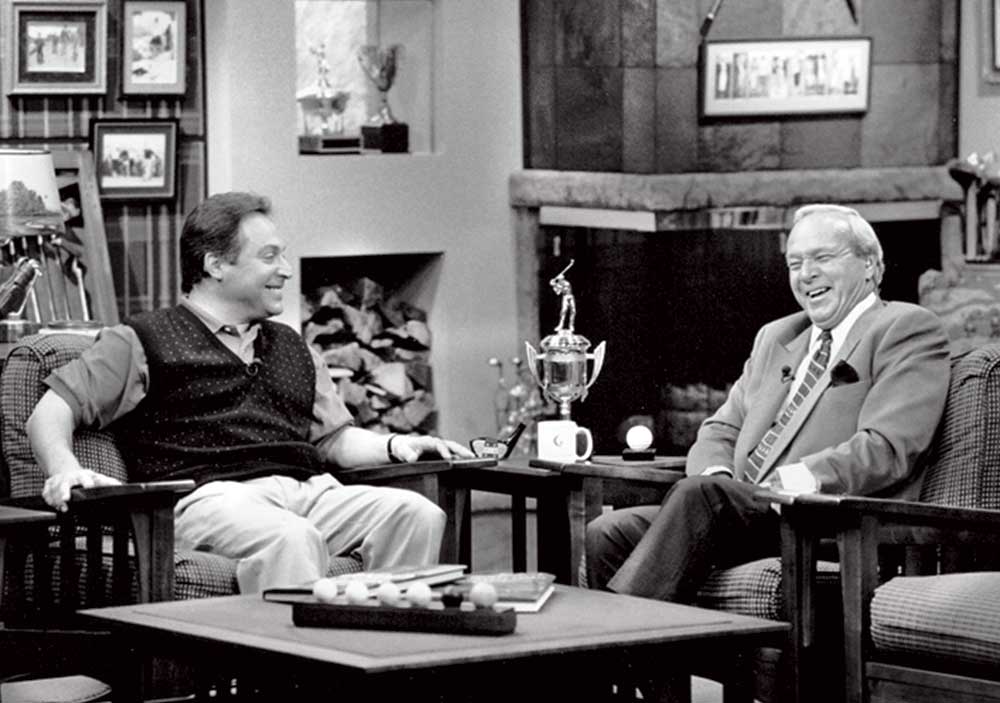
ACT III
SCENE I: A small, sterile office in Orlando. On the walls are posters for the proto-hybrid that Kessler helped design and market. He sits in a chair, wearing a logo’d cap and polo. A TV shows the infomercial that was ubiquitous on the Golf Channel in the years after his firing. CHRISTOPHER KESSLER bounds into the office. He has spent the last couple of years helping his dad with the business.
CHRISTOPHER: I’ve got some exciting news. We just sold our 300,000th club! That’s gotta be a record for a start-up.
KESSLER, bored: Which Beatles song do I like to play on my guitar?
CHRISTOPHER: “Can’t Buy Me Love”?
KESSLER: My feelings exactly.
CHRISTOPHER, changing the subject: Who is going to be on the show today?
KESSLER: Who cares? It’s only XM Radio. No one listens. And if they do, I can’t see them. I can’t feel them. Same with the guests — there’s no connection. For all I know they’re sitting in their underwear at home while we’re talking. Just because I’m good at radio doesn’t mean I have to like it.
CHRISTOPHER, looking at notes on the desk: Did you call your agent back?
KESSLER: Which one? I’ve fired so many I can’t keep ’em straight.
CHRISTOPHER: You should call him back. You never know when another TV job is going to turn up.
KESSLER: You don’t get it — I’m being blackballed. It’s Finchem. He won’t let me touch anything involving the Tour. It goes back to the Casey Martin thing, when he was on Golf Talk Live. I was rude and disrespectful. I should have listened better. Instead, I challenged him. At one point I said, “That’s unacceptable coming from you.” I didn’t handle it well. It was only a ten-minute segment, but it definitely ruined our relationship. And it’s still haunting me.
The reporter reappears on the edge of the stage.
REPORTER: Former PGA Tour commissioner Tim Finchem was baffled by Kessler’s accusation, saying that he had never thwarted any employment opportunities for him. Finchem added, “I would never even think to connect Peter Kessler to the Casey Martin issue. Furthermore, if Peter was critical of me at the time, he wasn’t the only one.”
Kessler is now out of his chair pacing around the office.
KESSLER: It’s so political. All of these executives know what I can do, but they want me to kiss their a–. And one thing I’m incapable of doing is kissing a–.
The phone rings and Christopher answers it. He nods while listening to an unheard caller.
CHRISTOPHER: That was your agent. Your XM show just got cancelled.
SCENE II: Peter’s office in his Orlando home. The walls are covered in golf memorabilia. The band Cream plays softly in the background. Peter’s hair is mostly silver now, indicating the passing of time. He sits in his chair, staring straight ahead. His son enters the room.
KEVIN: I thought you said you were working on your book.
KESSLER: I am.
KEVIN: Looks like you’re just zoning out.
KESSLER: You don’t understand how my mind works. I write everything in my head.
KEVIN: You’ve been saying for years that you’re going to write a book, but we haven’t seen any pages.
KESSLER: I’ve seen them. They’re all in my head. I was working on chapter three until you disturbed me!
KEVIN: Lemme see your phone for a sec.
Kevin taps the screen while his father continues “writing.”
KEVIN: I just set up a Twitter account for you. It’s time to put yourself out there and be part of the conversation again.
Kevin exits. Kessler takes the phone and his fingers dance on the screen. On the wall behind him images appear of tweets directed to him.
IAN POULTER: Why so bitter in your old age? Is this what I have to look forward to when I become irrelevant?
BRANDEL CHAMBLEE: His words, besides being flaccid, scream desperate.
PETER KOSTIS: I don’t know what your problem is but you’re no longer my problem. You are blocked. Have a great day and remember to take your meds.
OWEN CALVIN-SMITH, golf fan: Hahaha…loving how jealous @PeterKessler must be in order to try and throw shade. Dude needs to accept that he’s old, confused, and just go buy some New Balances.
Kevin returns to the study.
KEVIN: How’s the tweeting going?
KESSLER: You know, I’m really getting the hang of it.
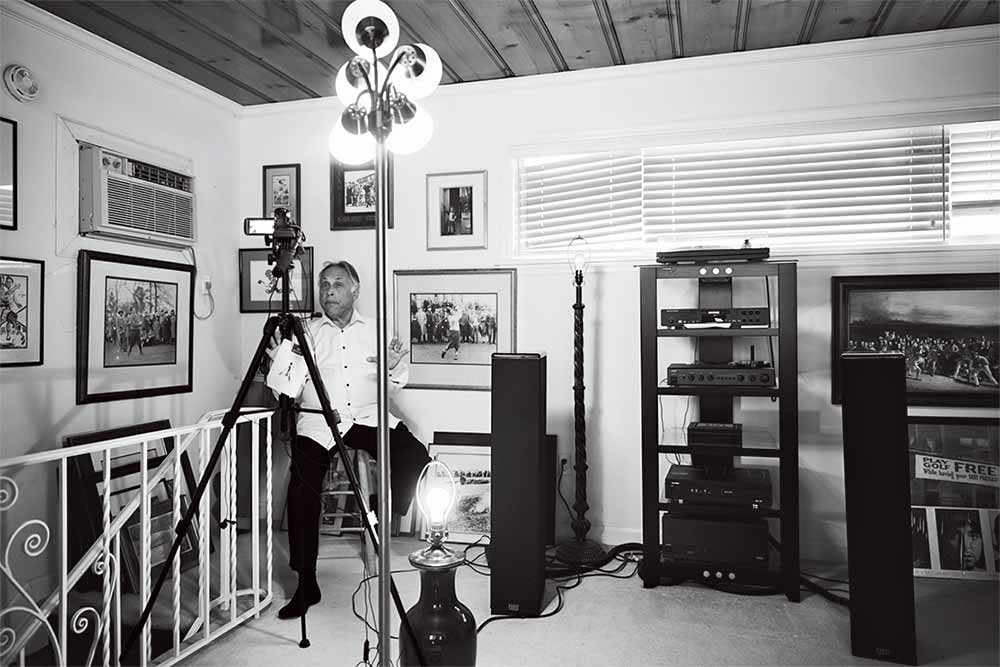
SCENE III: The kitchen. Kessler is sitting at the table eating breakfast and reading Bobby Jones’s Down the Fairway. It is April 2019. Janet enters, in hospital scrubs. She kisses her husband on the cheek and exits.
KESSLER, to the theater audience: What a saint. How she’s put up with me all these years, I’ll never understand. When Janet was 55, she went back to school and became an emergency room cardiac echo tech. With the kids out of the house, she wanted a new challenge, but frankly, we needed the money. When Golf Channel sold to Comcast for $2 billion in 2000, the single biggest asset the channel had was my library of shows. This was way before the Tour deal—they had literally nothing else to offer, content-wise. All that work was worth some percentage of $2 billion, but of course I didn’t see a dollar. Now I’ve got no savings and nothing is coming in. My sister married an heir to the Hess fortune, and she helps me sometimes, which is humiliating. So do I need money? Yes. But that’s not why I’m working so hard these days. I’d like one more act. I’d like one more turn on the stage. I feel like I still have so much to give to this game. I know I’ve made it hard on myself. This whole Twitter thing, I was trying to play a character, just as I’ve always done. The d–khead role was supposed to be funny, but it wasn’t. I screwed up. I forgot who I am. I’m supposed to be golf’s Renaissance man, and I lost sight of that. I have more to say about all of this, but I have to go to the studio.
He stands up and puts on a blue blazer, exiting the kitchen and walking upstairs to his study.
SCENE IV: Kessler’s study. He is wearing the blazer and fussing with a small video camera mounted on a tripod. He has begun regularly posting original videos on Twitter and peterkessler.com, all of them filmed here. Some golf fans are delighted to be reunited with the man they let into their living room for so many years. Some see only an old man yelling at the clouds. Kessler presses the red button on his camera, settles into his usual spot and is utterly transformed. There is a twinkle in his eye again. His mellifluous voice fills the theater.
KESSLER: Lately I’ve been thinking about Sam Parks, Jr. He was a professional in the ’30s who lived in Pittsburgh, very close to Oakmont. And in 1935, the National Open was held at Oakmont, which was then the hardest golf course in America, and may still be. Sam was the first player to measure yardages, from trees and various landmarks to the front and middle of the greens. Now, Jack Nicklaus was given credit for that, but actually he was taught to do it by Gene Andrews, who learned it from Sam Parks. Anyway, Sam was only a 75 shooter. But he spent many days practicing at Oakmont and came to believe that four 75s would win at Oakmont because the course was so hard. And sure enough, he shot 299 and won the Open. Nobody talks about Sam Parks, Jr., anymore. Why would they? But what he did was brilliant and unique. It’s part of the narrative of the game. Parks’s time passed long ago, but it doesn’t feel right to just let him fade away. He has too good a story not to tell.
Kessler stands up and turns off the video camera. He faces the audience. There is pain in his expression, but also the satisfaction that comes with doing the work once again. The curtain falls.


